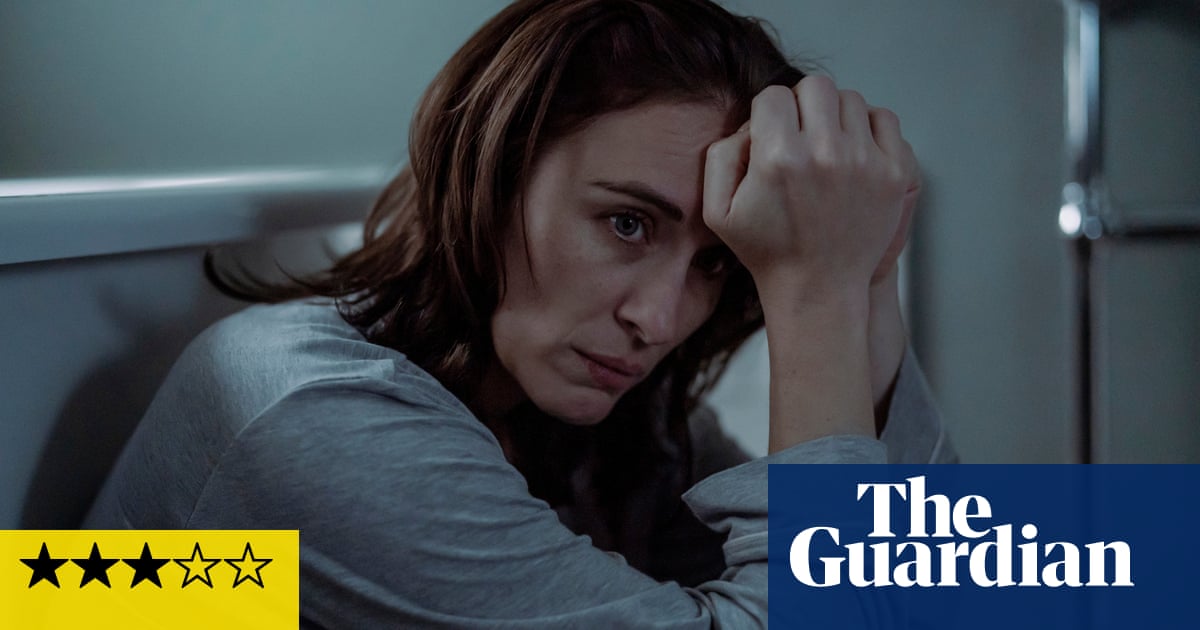Emma Averill (Vicky McClure) has everything. Sheâs married with two children, and is a compassionate, competent family lawyer. Her firmâs conference room looks out over St Paulâs Cathedral in London, but after another fulfilling and lucrative day, her BMW swooshes her home fast enough to crunch on to the gravel drive of her big country house in time for a bedtime story with her son. When she and her ruggedly bearded hubby Rob (Tom Cullen) invite their urbane friends over for a relaxed weekend lunch, the chilli she whips up in their massive kitchen is divine; itâs served on a palatial wooden dining table made by Robâs own strong hands.
But Emma is the protagonist in a British psychological thriller, of the kind that used to blaze across two breathless episodes on ITV midweek, but now hangs around for six rather more pretentious ones on Paramount+. So Insomnia, adapted from her own novel by Sarah Pinborough, says to Emma: nice upper-middle-class life youâve got there. Be a shame if something absolutely bananas happened to it.
The cracks that show first are routine. Emmaâs daughter is old enough to be interested in sex and weed but not wise enough to enjoy them responsibly, her young son is drawing weird pictures, a case at work is going against her, her black sheep sister Phoebe (Leanne Best) has just reappeared unexpectedly, and, worst of all, itâs her 40th birthday next week.
But this landmark is not just an ugly number: when Emma and Phoebeâs mother hit 40, her mental health problems worsened, causing the girls to be taken into care. Now Emma is having trouble sleeping, with visions of her mumâs disturbing night-time behaviours. The news that her mother has been transferred from her secure facility to a hospital deathbed ratchets up Emmaâs own instability. In her sleep she starts feverishly lighting candles, running baths, rattling door handles and talking to the inside of cupboards, just like Mother used to. When she awakes to find herself knee-deep in the garden pond, she knows something is up. Is she the bearer of a hereditary curse?
As well as the fear of ageing and the perennial terror of becoming your parent, Insomnia turns its bloodshot gaze to the secrets within families and the passing down of trauma from one generation to the next. But, really, we are just waiting for the pot to boil, which it has barely started to do by the end of the introductory double bill. Nicely presented as they are, the unnerving stillness of the Averill house at night and the ring-a-roses creepiness of the childrenâs home flashbacks can take us only so far: thereâs a woman doing very odd stuff in the small hours, and Insomniaâs character studies and subplots arenât compelling enough to stop us drumming our fingers and waiting to be told why.
Getting there means navigating one of those stories that relies on suppressed memories bubbling to the surface when dramatically convenient. If everyone could just remember everything now, they could save us several hours of viewing time, and save Vicky McClure from having to do so much anguished staring in sweat-soaked silk pyjamas. Insomnia is nagged by the doom that looms over every psychological thriller: viewers might be better off waiting for episode six to drop, then watching the last half hour for answers, like bored readers flipping to the final few pages. The ending that awaits them will cause half the audience to say âWhoa, deepâ and the other half to say âOh come ONâ â in particular, thereâs some gubbins involving a long string of random numbers that requires oneâs tolerance of tenuous hogwash to be dangerously high.
And yet, Insomnia does reward those who abstain from fingering the skip button. The section where the tension brims and everyone starts having sex with or murdering each other is lent a pleasingly woozy quality by the show not being in any hurry: episode four consists almost entirely of people sitting around drinking wine and taking drugs, with the abuse of prescription medication a bracingly honest depiction of how people with money react to stressful events. The fractious dynamic between McClure and Best as unequal, mutually resentful siblings â one a golden child who is flourishing as a responsible adult, the other a scrappy rebel who is unhappy, but free â is given time to become convincing. The final episodeâs jamboree of drugging, stabbing and bludgeoning includes a comeuppance that is as satisfying as it is inevitable.
Thereâs also a last twist, presented with a conjurorâs flourish, that will stay with you just long enough for you to conclude how little sense it makes. Emma has been through hell, but you will have forgotten her before your head hits the pillow.
after newsletter promotion











